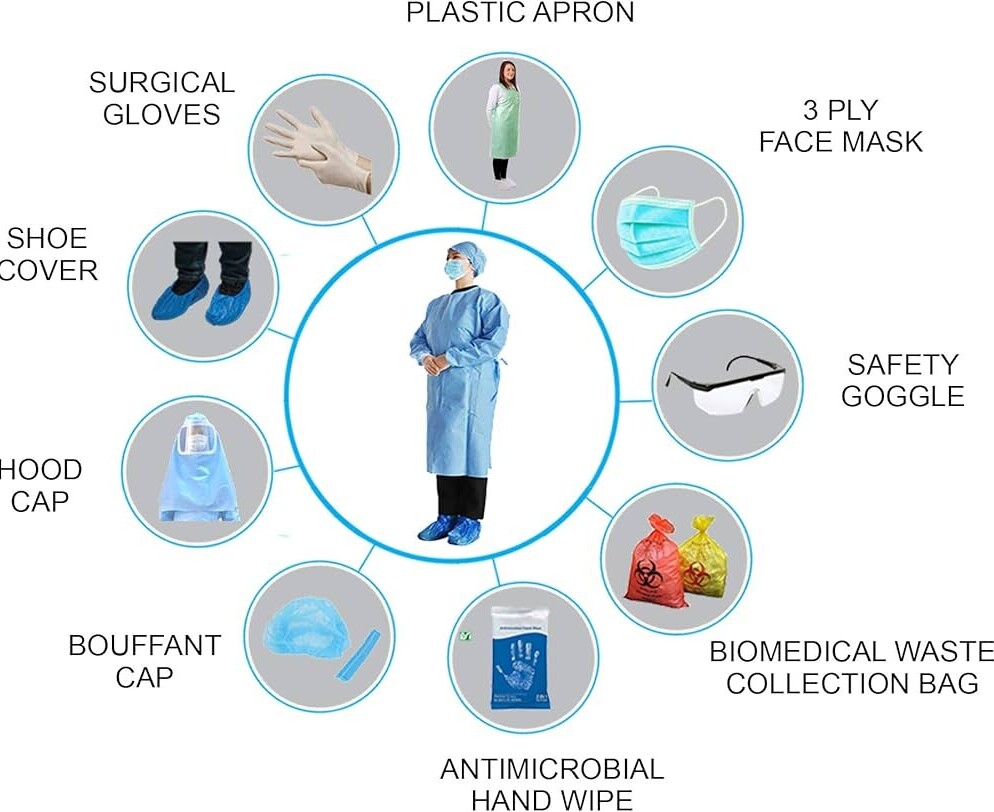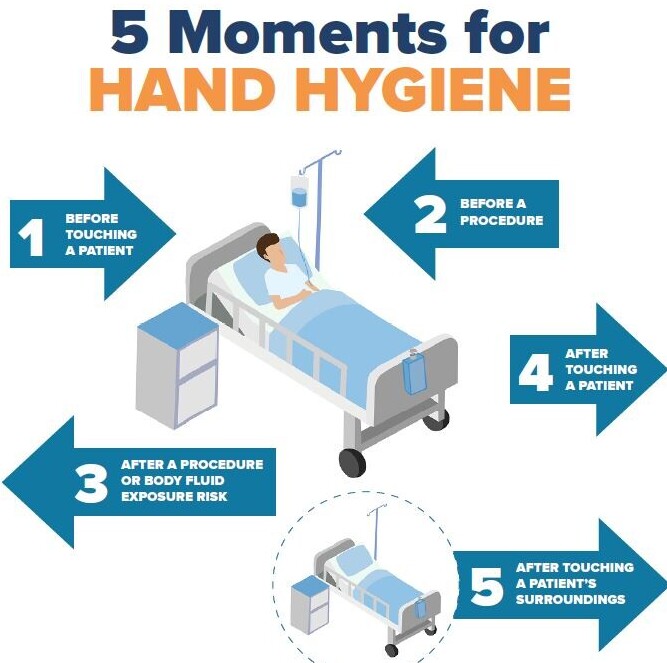 It is because basic infection control helps to fight against infections either bacterial, viral, fungal, or parasitic infection. If the infection is severe enough, it can spread to the blood stream leading to sepsis and possible septic shock which are life-threatening. Therefore, these practices play a massive role in keeping everyone safe and healthy.
It is because basic infection control helps to fight against infections either bacterial, viral, fungal, or parasitic infection. If the infection is severe enough, it can spread to the blood stream leading to sepsis and possible septic shock which are life-threatening. Therefore, these practices play a massive role in keeping everyone safe and healthy.
In contrast, inadequate infection control can lead to some serious consequences. It can lead to increased illness, prolonged hospital stays, and even serious health complications. That’s why practicing good infection control measures is essential.
So, what are the measurements to keep infection at bay? Hand hygiene is at the top of the list – washing your hands thoroughly can prevent illnesses. Next, the use of personal protective equipment (PPE) such as masks, gloves, goggles and gowns, which create a barrier against germs. What about respiratory? Respiratory hygiene is a key, covering your mouth and nose when you sneeze, or cough can stop the spread of harmful droplets.
Practicing these safe measurements correctly either individual or combined will makes the real difference. When everyone does their task, the whole community benefits. Basic infection control measures are essential for keeping infections at bay, and understanding their importance is the first step to mastering them.
Key Steps to Effective Infection Prevention

As I mentioned above, hand hygiene, PPE, respiratory hygiene and safe injection practices are all vital.
Let’s begin with hand hygiene, hand hygiene is non-negotiable. There are five moments of hand hygiene:
- Before touching a patient
- Before a procedure
- After a procedure or body fluid exposure risk
- After touching a patient
- After touching a patient’s surroundings
You are either washing our hands with soap and water for at least 20 seconds or hand rub with a hand sanitizer with at least 60% alcohol depends on which tasks you performed.
Moving on to Personal protective equipment (PPE), is another essential component. PPE includes masks, gloves, goggles or gowns and most importantly, using them correctly is crucial. It is also vital to change PPE between tasks or patients to eliminate cross-contamination.
Next, respiratory hygiene and cough etiquette is your way of being a great model of preventing infection. Cover your mouth and nose with a tissue or your elbow when you cough or sneeze, then dispose the tissue right away and wash your hands as a follow step. If applicable, wearing a mask can help stop those pesky droplets from spreading to others.
Lastly, safe injection practices are a must in healthcare settings. You should always and always use sterile, single-use needles and syringes. NO REUSING THEM. It is not only safety, but also strict protocols to keep everyone safe.
Maintaining a Safe and Clean Environment
This includes Environmental cleaning and disinfection, Isolation of infected individuals, Safe food handling and Safe waste disposal.
Let’s start with environmental cleaning and disinfection, these are your best friends in keeping spaces free of germs. Frequency touching surfaces such as doorknobs, light switches, and countertops need regular cleaning. Utilizing EPA-registered disinfectants to perform the task is a must.
Regarding Isolation of infected individuals. It is essential to isolate an infected patient when dealing with contagious diseases. In healthcare settings, this means designated isolation rooms and it’s a proven way to stop germs from spreading to other patients, visitors or nursing staffs.
Safe food handling can’t be overlooked. Washing your hands before and after handling food is a safe practice. Apart from that, using separate utensils and cutting boards for raw and cooked foods to eliminate cross-contamination. Furthermore, ensure to cook food at a right temperature to prevent bacteria.
Finally, safe waste disposal is more important than you might think. Deposal of used tissues, medical supplies, and other contaminated materials in designated containers are pivotal as proper disposal minimizes the risk of spreading infections.
Empowering Communities Through Awareness and Vaccination
Vaccination, Awareness and Education play a vital task in preventing infection.
Vaccination is a powerhouse when it comes to preventing infectious diseases. Staying up-to-date with recommended vaccines is not only protecting yourself, but also helps protect those around you.
Education is another key player. Knowing the importance of infection control and spreading that knowledge can make a world of difference. Whether it’s through community workshops, online resources, or talking with friends and family, spreading awareness helps everyone stay informed and safe.
Following public health guidelines is essential. They are there for a reason, they are built on expert knowledge and the latest research, and these guidelines help reduce infection risks and keep everyone safer. Therefore, stay informed about the latest recommendations and don’t hesitate to adjust your routines accordingly.
Infection control measures may seem overwhelming but essential and worth to obey. As novice nurses, making them a part of your everyday routine and staying educated, you can all contribute to a healthier, safer healthcare environment. Every effort counts and together you can make a big impact when providing care to your patients.
